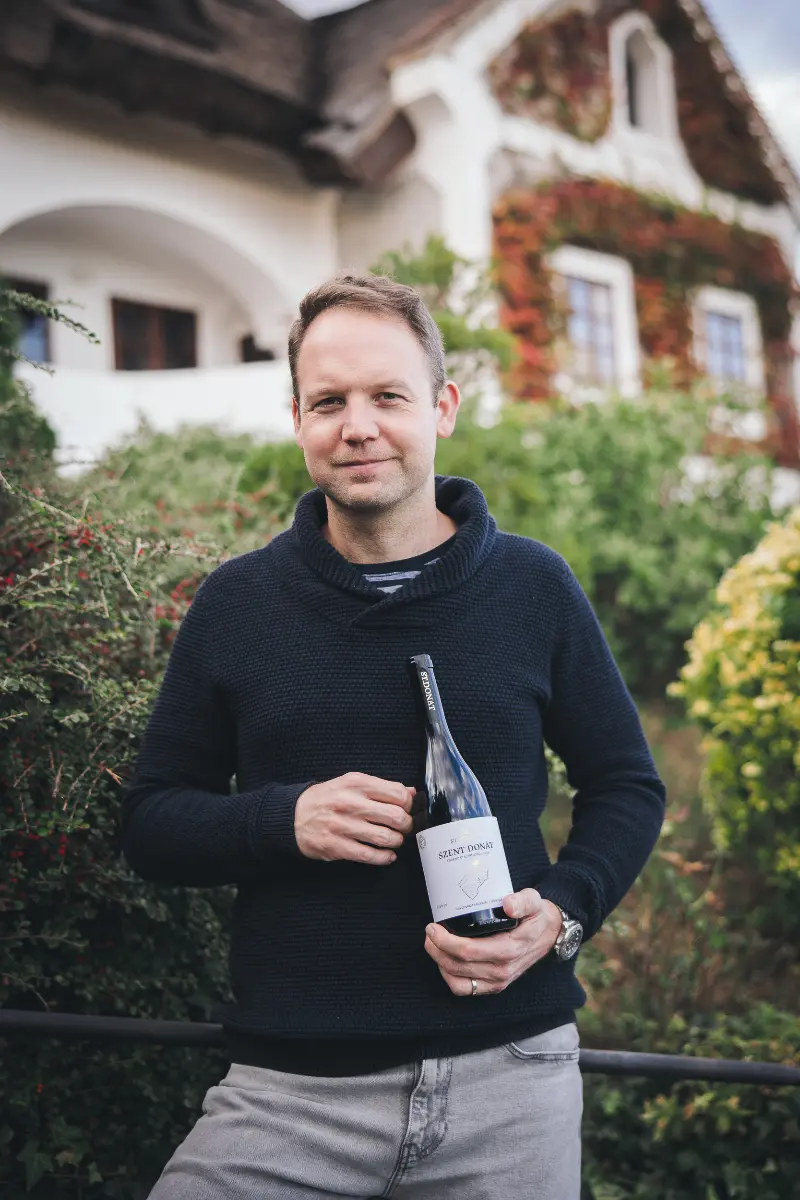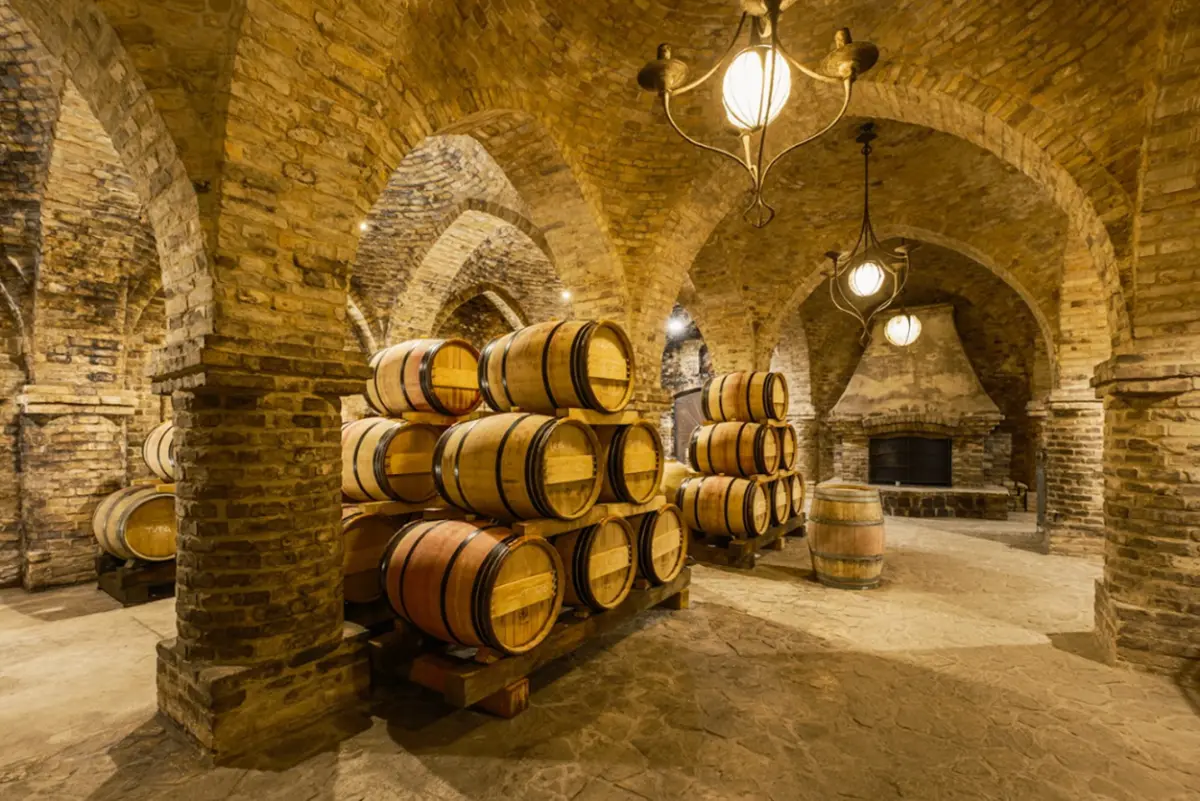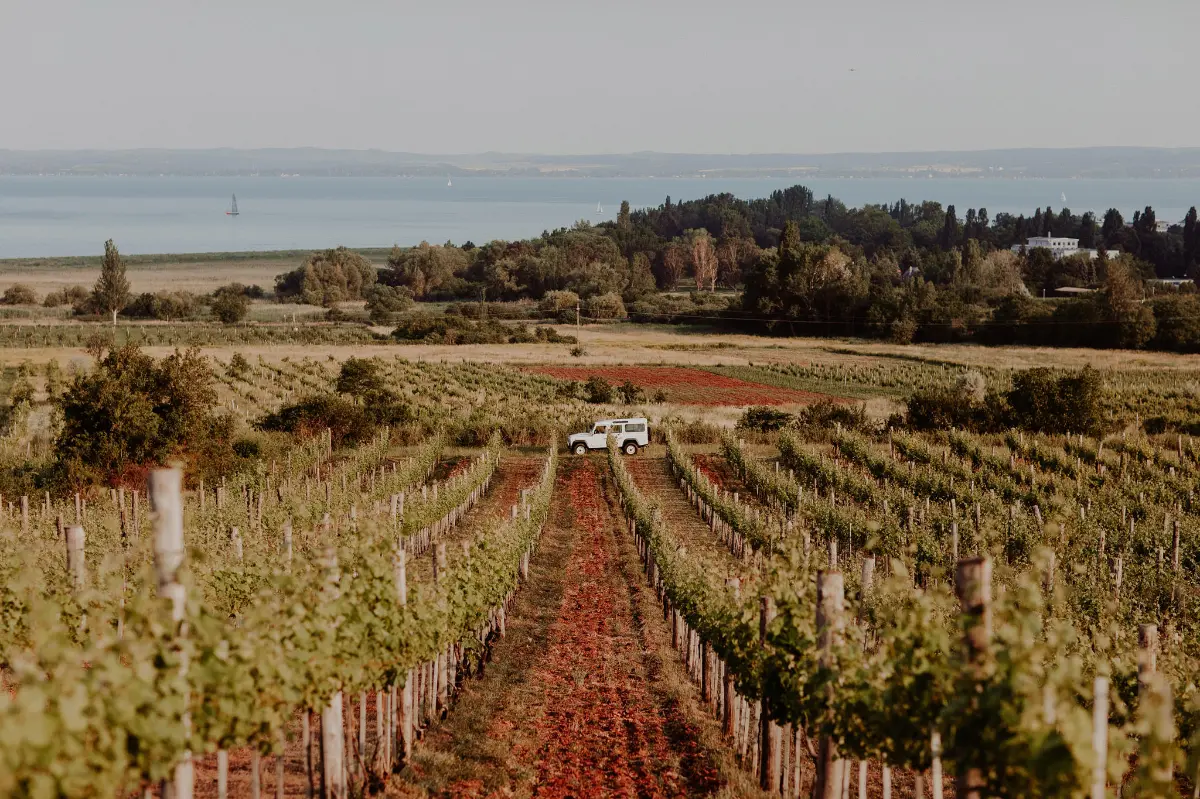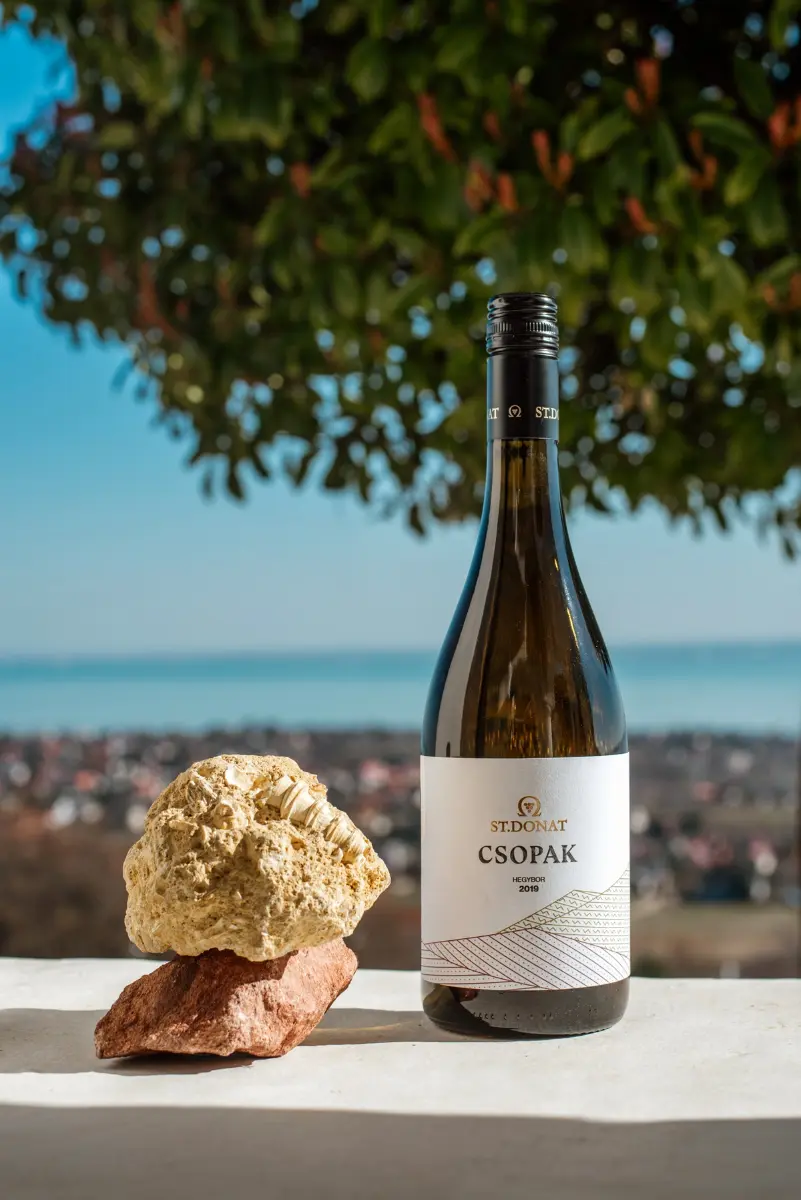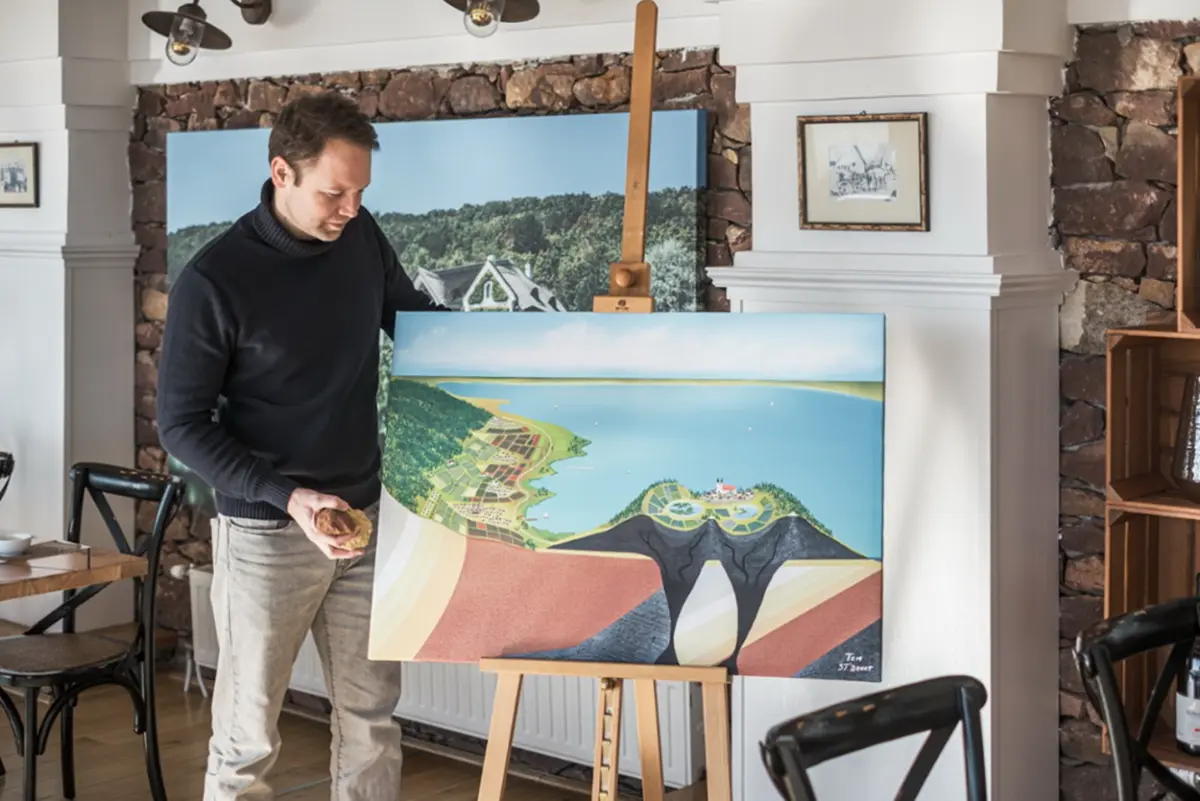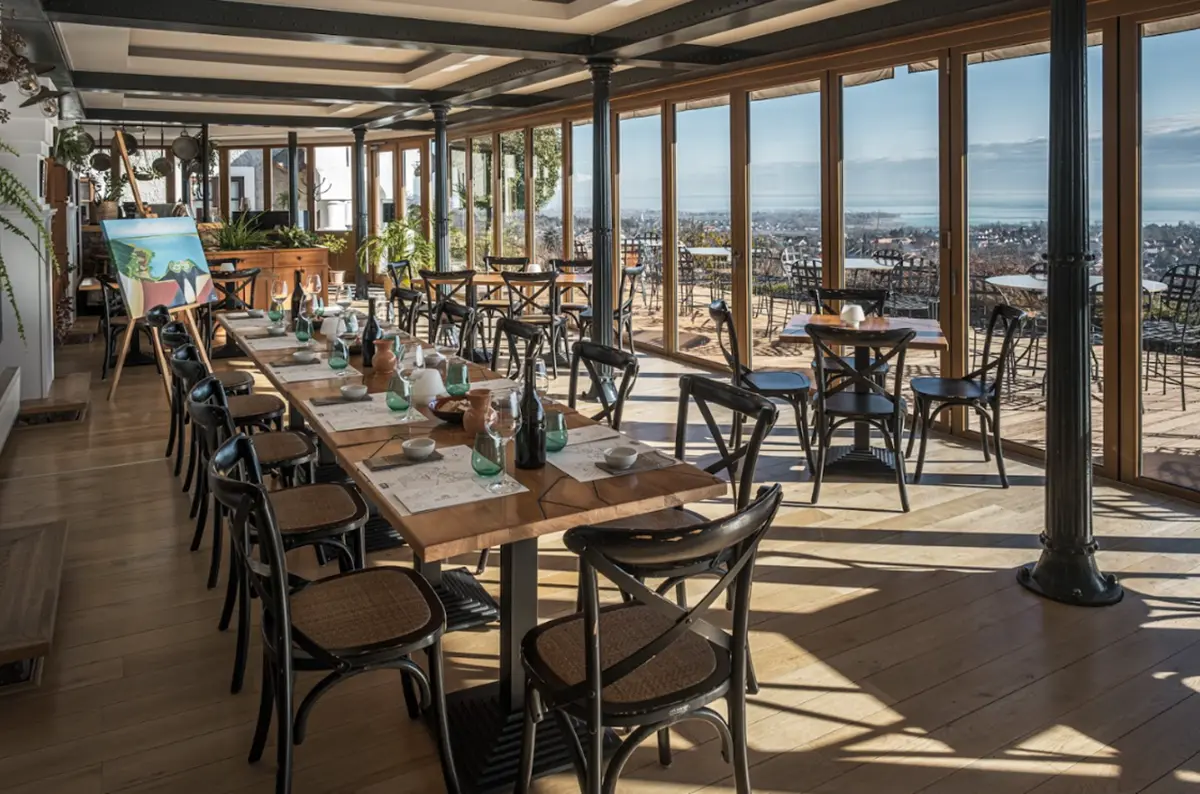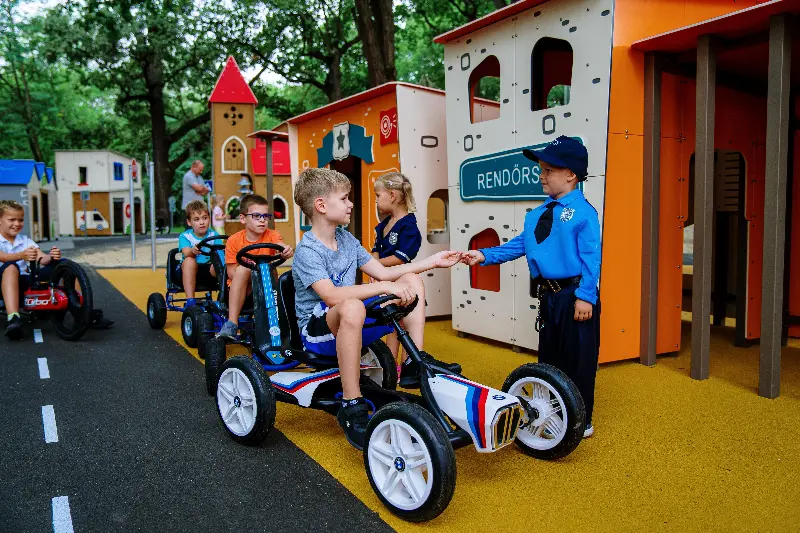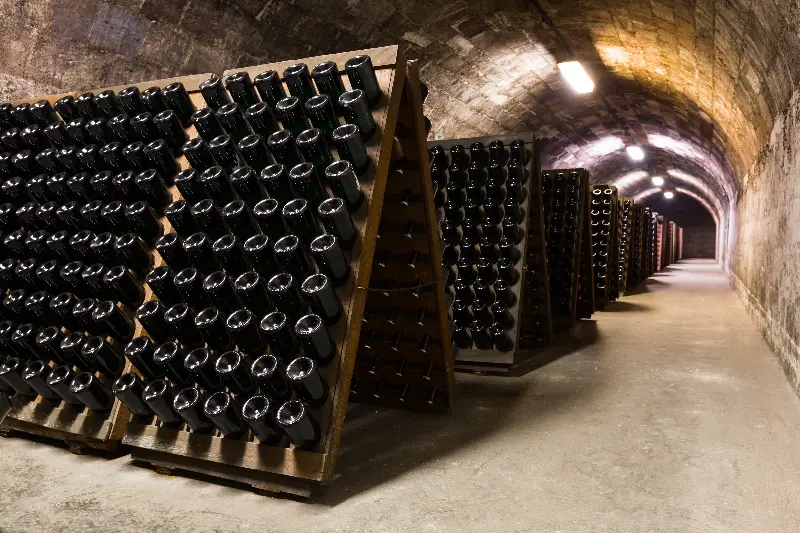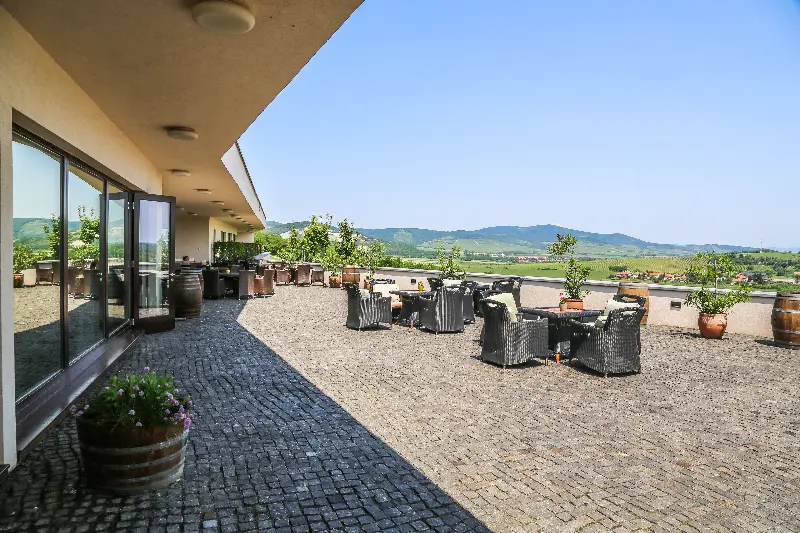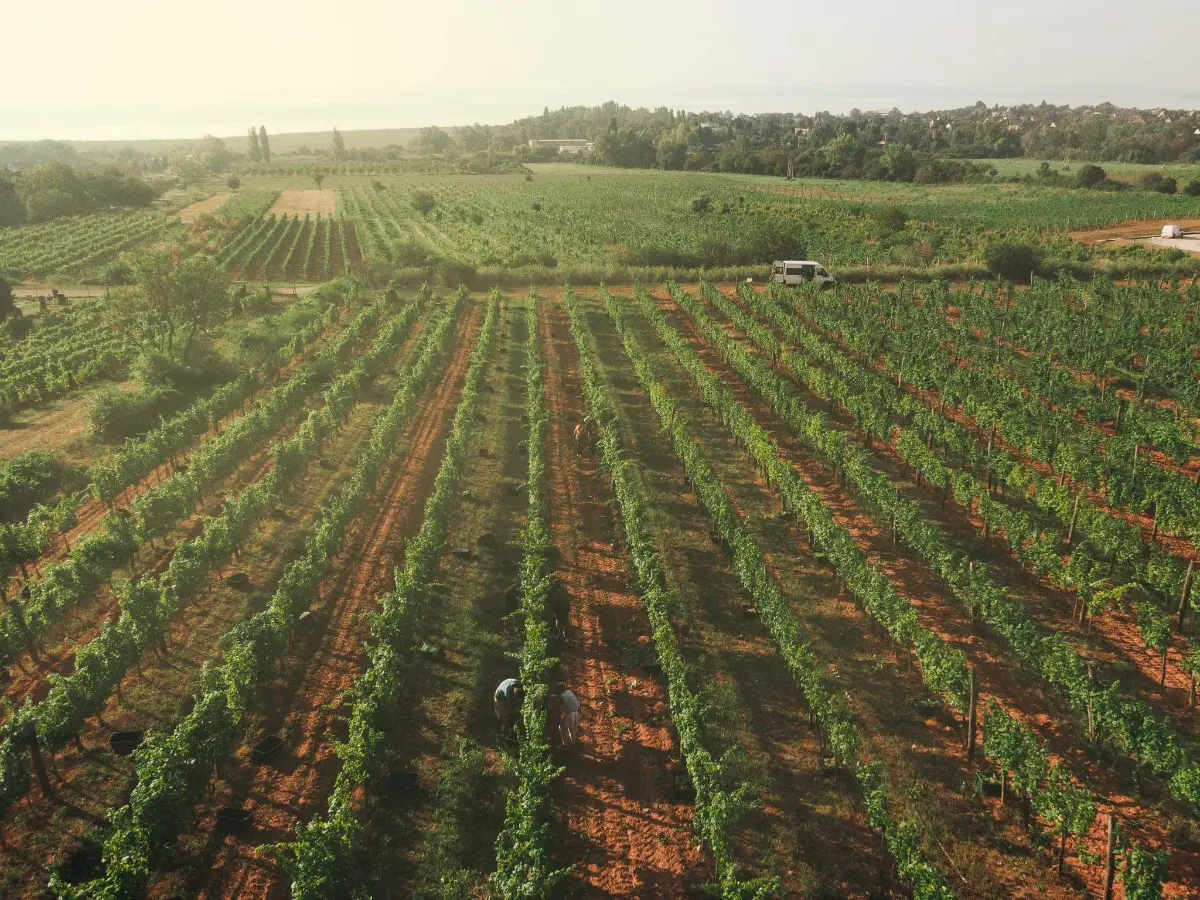
Helyszín címkék:
In the wake of St. Donat, or old and new miracles
Francisck Réka Alíz
Gastronomic wine, panorama, slow-winemaking – how relevant are these buzzwords for the St. Donát winery?
These are all relevant, and I will finish with one more right away: boutique winemaking.
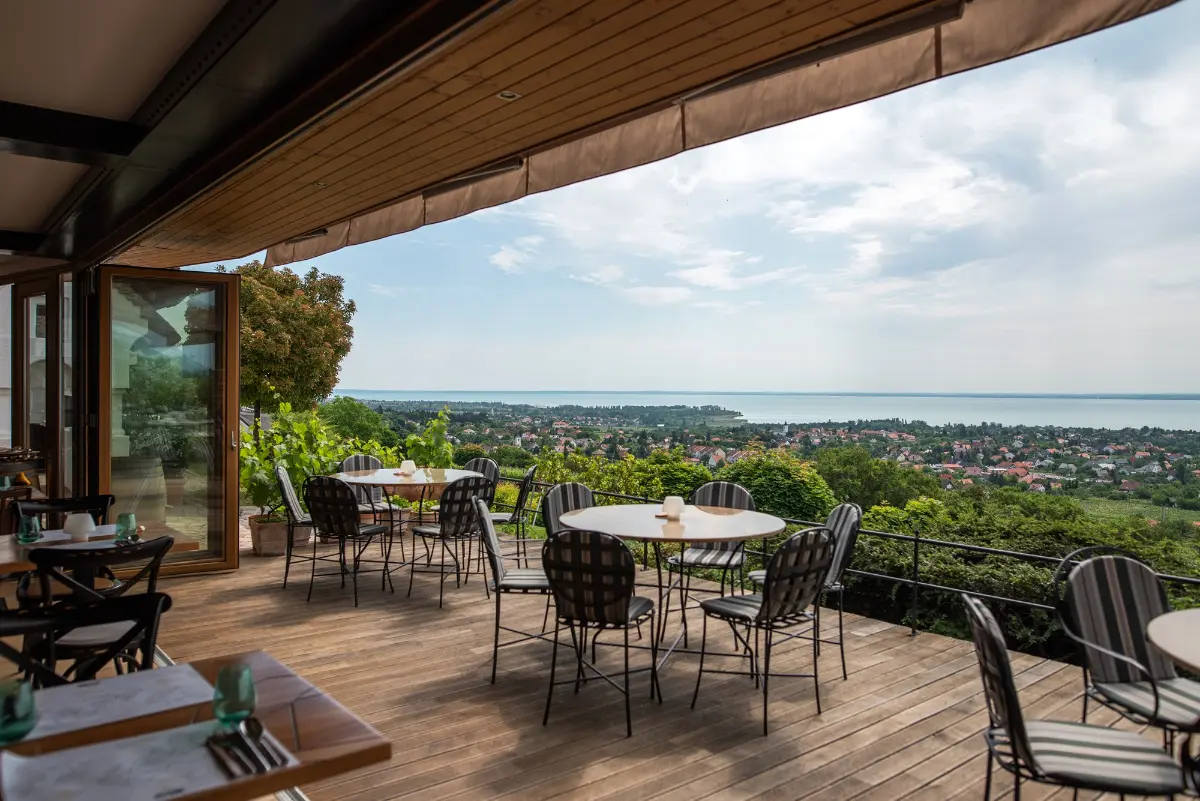
What do you mean by the latter?
My view is that many wineries under 100,000 bottles count as such, but just because someone is small does not necessarily mean that they belong to this genre. For me, the essence of this concept is that all work is done within doors, from grape-growing to bottling, and the emphasis is on high quality. We do not buy grapes, we only use the produce of our own areas, which are entirely organically cultivated. This genre is very expensive, but the highest quality can be achieved this way. Only a few percent of the domestic production belong to this category, and due to the high price, the market is already narrow, catering establishments are mostly interested, and perhaps a few more demanding wine shops. We produce a total of 40-50,000 bottles of wine per year, and with the current production capacity, we could increase this to a maximum of 70,000-80,000. Six of us work on the family estate, where the vines literally surround us - we live in them. In addition to Csopak, we also have vineyards in Tihany, in the Káli Basin and on the Fekete hill, and together with them we farm a total of 15 hectares and 12 vineyards.
This is a human-scale estate size, which gives us the opportunity to do the entire grape-growing ourselves, with manual harvesting, with a serious emphasis on yield limitation. We are supporters of minimal intervention during winemaking as well: we only rarely clarify and we bottle most of our wines without filtering. Keeping on a short shell and settling by gravity have also become our trademarks.
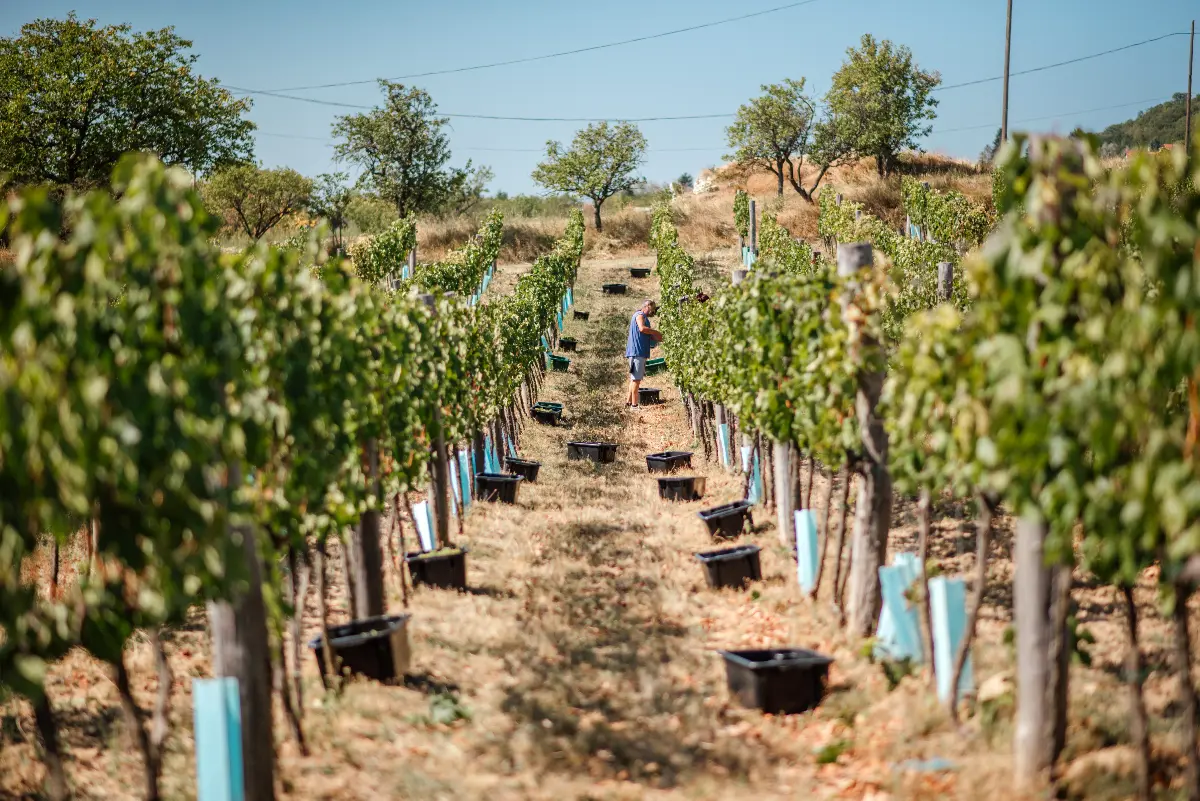
Is there a demand for this at home, or are you a brave pioneer?
60% of our wines are exported, mainly to the Scandinavian countries, the United States, Belgium, Germany - to well-chosen partners following many years of building relationships. We also keep our eyes open, but they also find us, and those who approach to us want eco/organic items available in limited quantities. I see that organic wines are becoming more and more popular here as well. In Hungary, our partners are primarily sommeliers who work in restaurants where a significant part of the clientele is foreign: these are typically the better-known restaurants in downtown Budapest and fine dining places in the countryside.
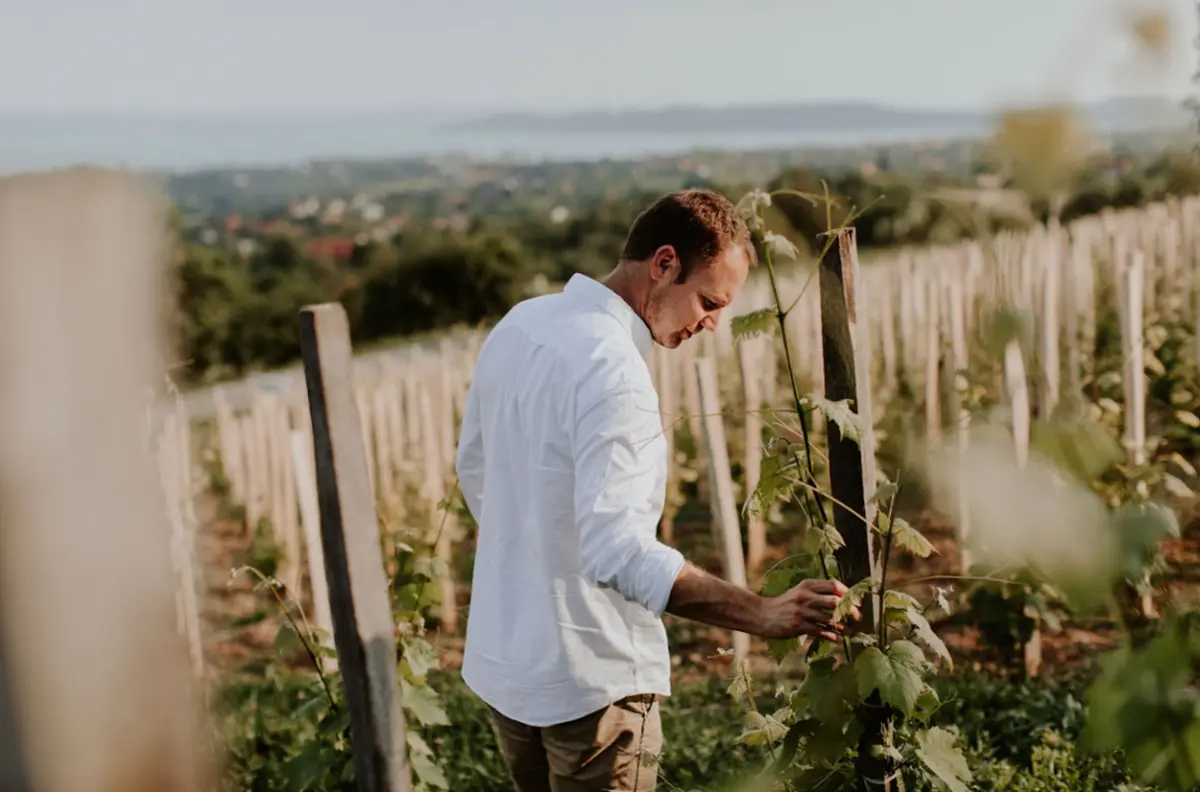
Could you say a few words about the Csopak Codex?
More than 40 historic vineyards with varied geology belong to the Csopak production area, and most of them grow the main protected variety, the Italian Riesling. The conditions for making vineyard wines are therefore excellent, and the system of the Csopak Codex provides a regulated framework for this. We launched it together with a couple of producers committed to the local vineyard culture more than ten years ago. As the name suggests, the essence of the initiative is a common system of winemaking rules, which includes guidelines for the cultivation of grapes intended for the vineyard category and winemaking work, from pruning to bottling. Wines with its trademark go through a strict inspection and evaluation system. And thanks to the jointly laid down rules, vineyard wines of uniform quality and style are made that are a pleasure to taste. For me, the vineyards and geology are the most exciting dimensions that appear in the wine.
The Balaton highlands are a geologically very diverse area. In other parts of the country, you might not even find so many rocks and soils of completely different origin in such a small place.
Our territories can be found on all three main rock families - volcanic, red sandstone rich in iron ore and various types of marl - so our wines also follow this theme with soil and vineyard selections, as well as the corresponding expressive names: for example, Magma, Marl and Hematite.
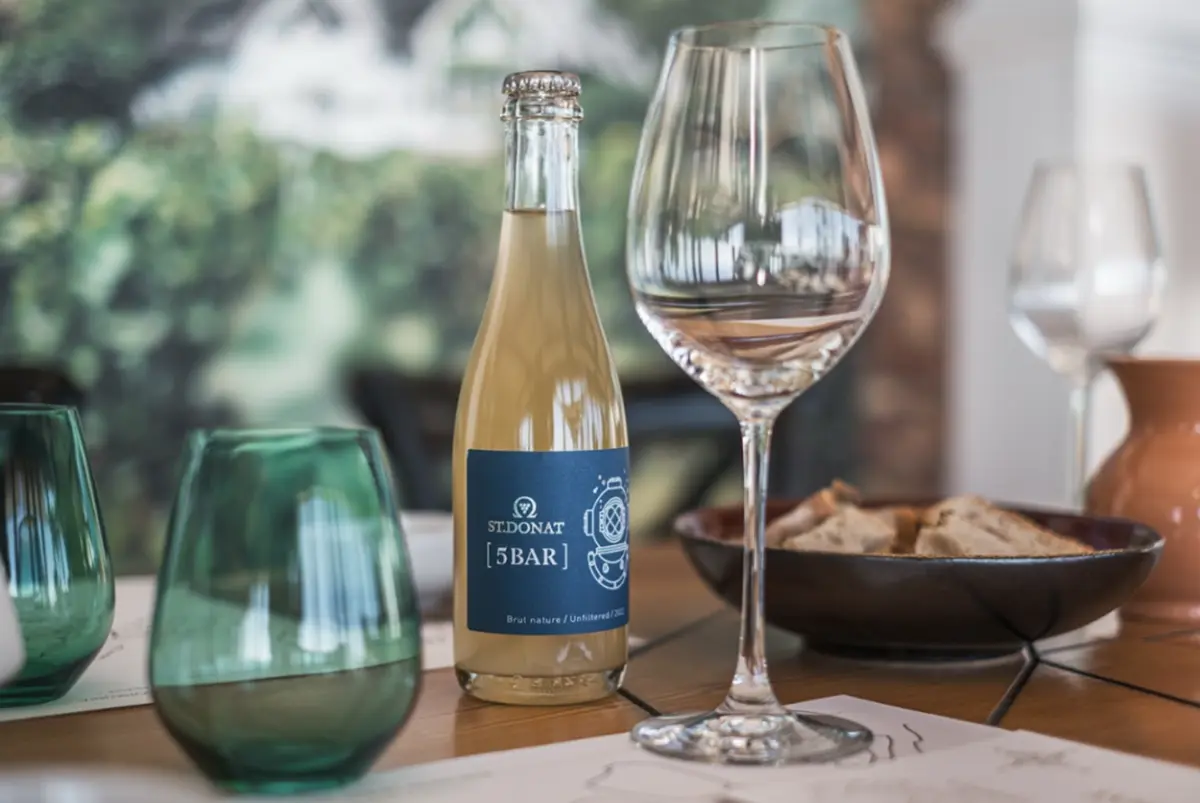
And what is 5BAR?
Our in-house game is a brut nature champagne, so-called "demie" - i.e. 0.375l - in a bottle sealed with a crown cap, and it is named so because I ferment it under such high pressure. By the way, this is also made from Italian Riesling.
Although it is small, it was a great hit when it was released, and in a tricksy way, it is one of the few positive benefits of the Covid era:
my American partner at the time was forced to conduct public tastings in the open air, in Central Park, and it was good for him that he could give each participant their own small bottle. It has been ordered since then, and it is also available at home in our webshop.
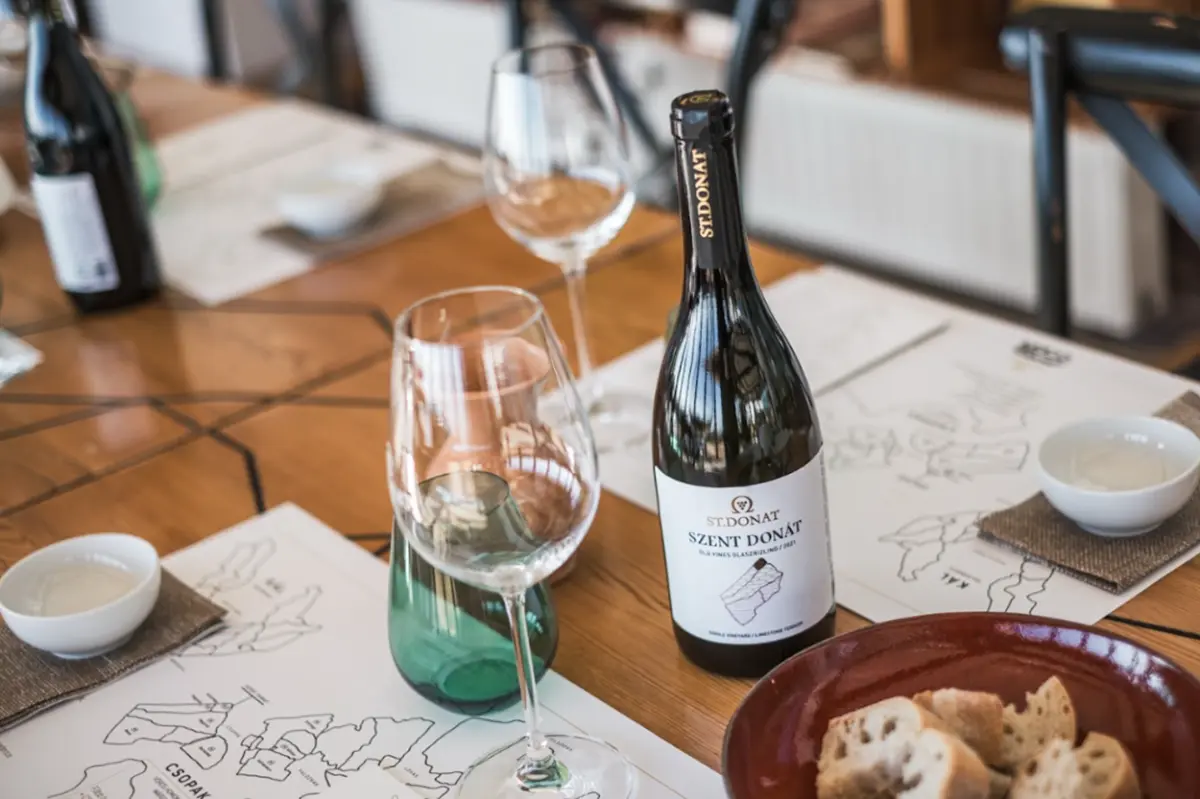
Speaking of tasting: how is it going here for you?
Anyone who registers in advance will receive a private programme: from autumn to spring, you can usually listen to my monologue about our wines and the philosophy behind them, peppered with interesting local history. In addition to the tasted items, we provide bread and olive oil as an accompaniment, which, in our opinion, takes the least focus away from the wine. In addition to the tasted items, we provide bread and olive oil as an accompaniment, which, in our opinion, takes the least focus away from the wine. Such guided private tastings last about two hours and include a tour of the winery as well. We also have regular opening hours, when anyone can sit on the terrace for a glass of wine. During the summer, we serve a "small plate" of local snacks with the wine. There are also plans for private jazz evenings during the summer months, where you can watch Lake Balaton while relaxing and enjoying live music or vinyl records.
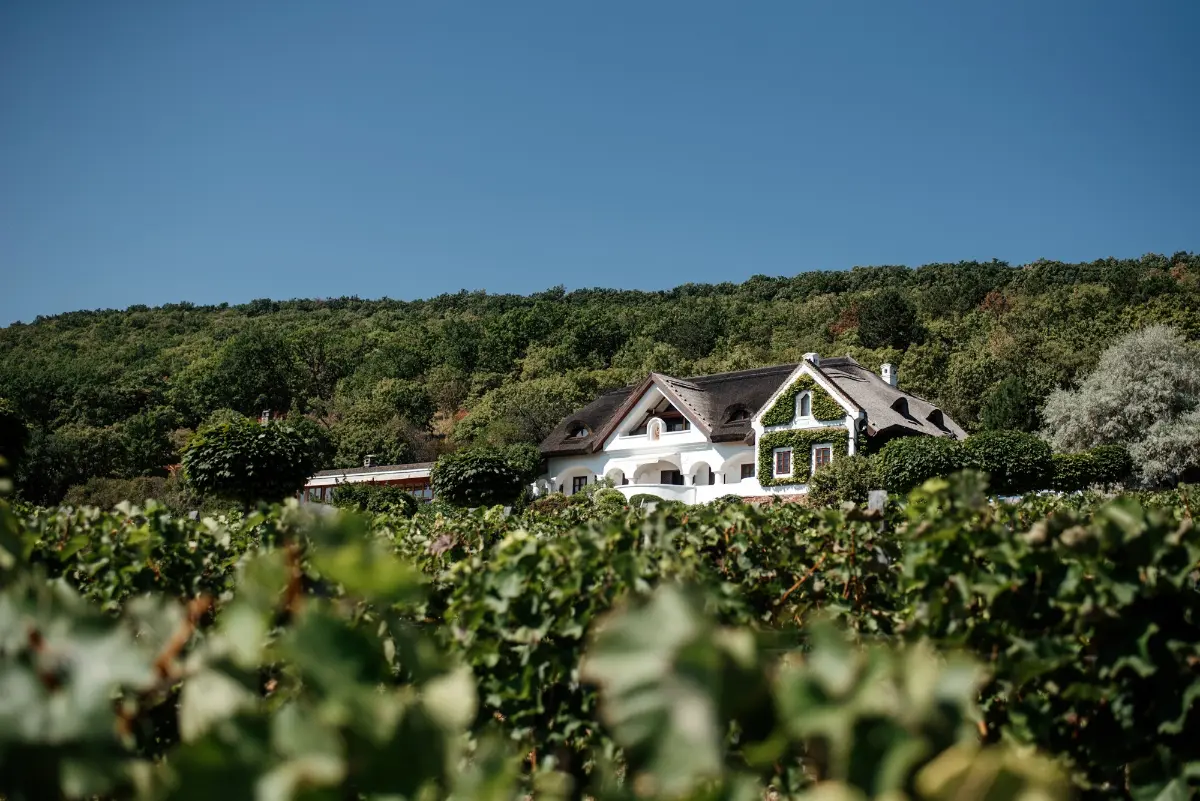
Tell me a little about the environment, please.
We paid much attention that our buildings fit into the landscape as if they had always been here. We are surrounded by historic vineyards and forests and, additionally, we are at a high point from which, in good weather, you can see two-thirds of Lake Balaton. The vineyardist house, built in the radical Balaton highlands style, was designed by Endre Szűcs.
The master builder Ferenc Heimann used bricks from the 200-year-old Gizella mill for the underground cellar system. The cellar itself is very spectacular due to the Gothic arches, but the eyebrows rise even when seeing our amphorae made of pyrogranite stone, made in Tuscan-Swedish co-production.
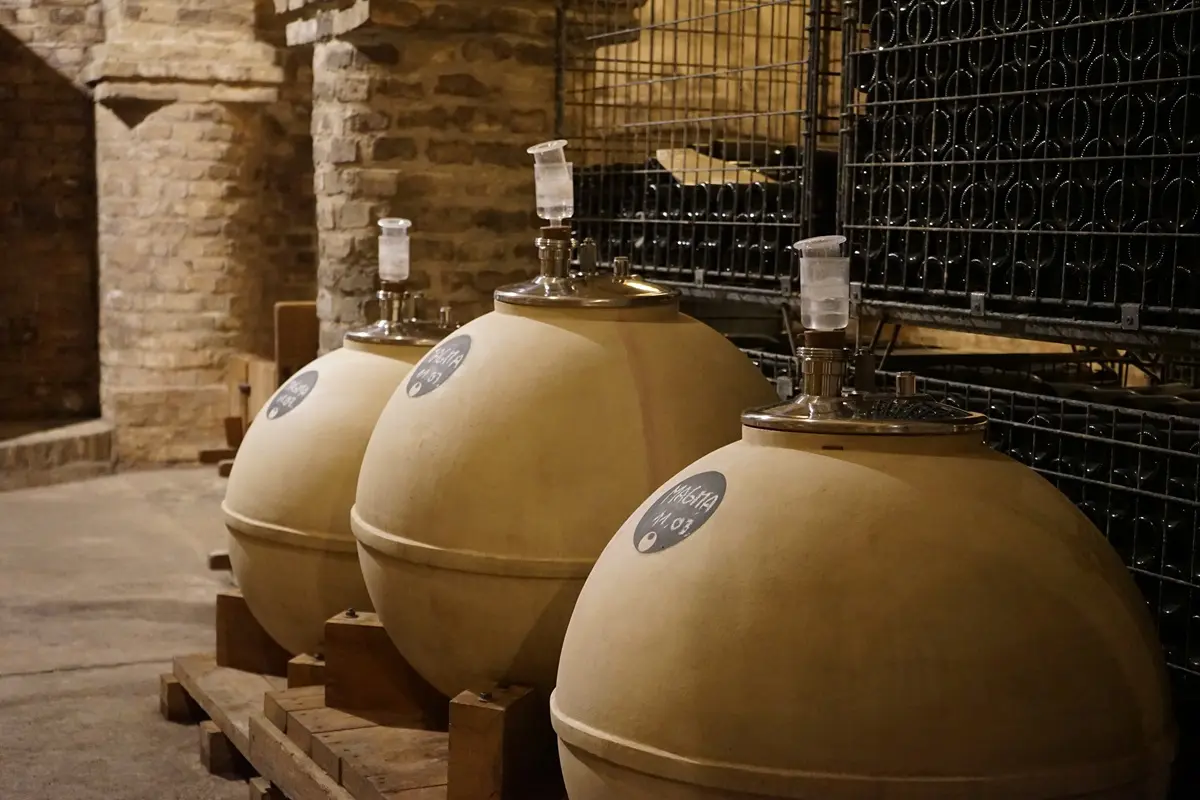
Why is the winery located in this particular place?
The foundations of the present-day estate were laid by my parents in 1994, but the family's relationship with grapes and wine goes back much earlier. On the paternal side, we have originated from Csopak for at least 200 years. After the war, the state took all the land from us. After my great-grandfather, we managed to recover part of the land, where the present-day winery is located, through compensation. The estate grew little by little in the nineties, and when we reached one hectare, we had to decide whether we would remain at the hobby size or grow further. Finally, a very rare celestial phenomenon provided the answer, even if indirectly: the total solar eclipse that occurred on 11 August, 1999, which we planned to admire from here, from the hilltop. We thought, we would sit on the benches under the almond tree, maybe even have a barbecue... but not only could we not sit under our almond tree, but almost nowhere, because the entire hillside was full of people spying on the sky. Since then, we have become a regular excursion point because of the beautiful view. So, the cellar and the house were built, and we started to sell our then few thousand bottles of wine based on local tourism. As a resident of Csopak, vineyard work has been a part of my life since childhood, but I got the inspiration to do it later in Belgium. I studied abroad as an exchange student in a secondary school, preparing for a career in foreign affairs.
During my time abroad, a few bottles of wine were an integral part of the gift-parcels I received from home, which were always a big hit in Belgian circles. It was there that I realized that good wine is a great value and one of the best mediators of culture.
I left the career in foreign affairs and returned home with the aim of producing wine and delivering it to as many countries as possible. A few years later, my first own wine was drunk in Bruges, at the Karmeliet with 3 Michelin stars. All this is a story from 2009, when fine dining was not even in its infancy in Hungary. Since then, these experiences have kept me burning and hoping that it is worth working with wine at home.
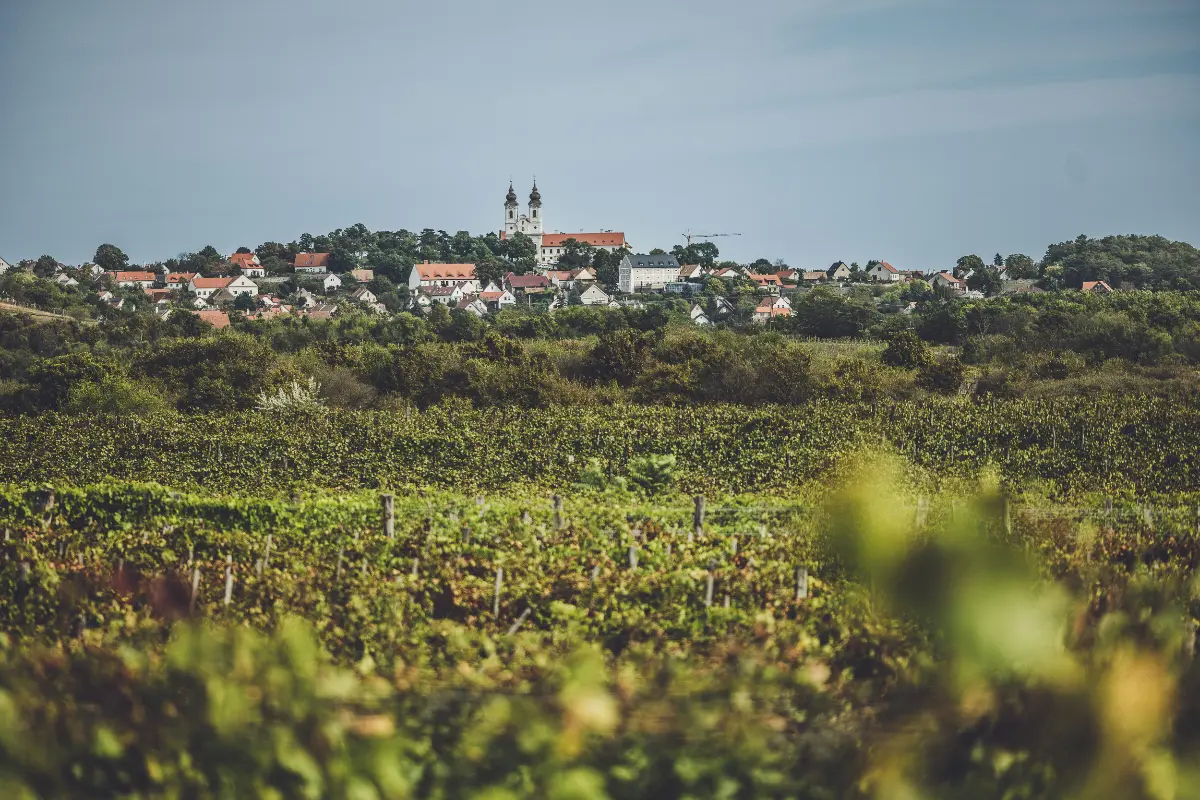
And why do you do this under the name St. Donat?
Our eponym was a Roman soldier, a Christian in an age when it was not fortunate to be one. A miracle is associated with his name, and the miracle happened right here, in what was then Pannonia. He died a martyr's death, then he was canonized and he became the protector of the vineyards along the Rhine. His cult was brought back to the area of Csopak by South German settlers, and he soon became the patron saint of the local vineyards. We read up on the legend, we liked the name, and sometimes its spirit also touches us. But it is no wonder, since our estate is located in a place where grapes have been grown for about 100 generations. In the Roman era, the Balaton highlands were distributed down to the last plot, mostly to military families - traces of this are still visible today. It is worth seeing the remains of the villa farm Villa Romana Baláca, which is a unique monument even in Central Europe - only the central residential building was 2,400 square meters.
The past lives there in the ruins, but also in our vines, and I approach wine production with a corresponding sense of vocation and mission: I know that this heritage must be preserved and passed on to the next generations. Our past must be cultivated - just like vines.
